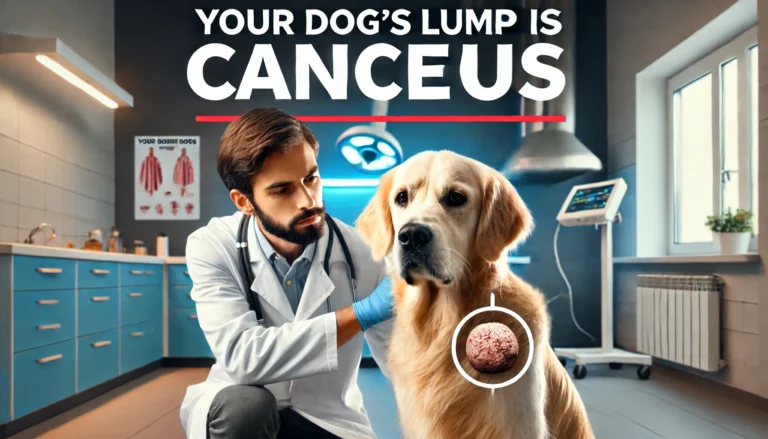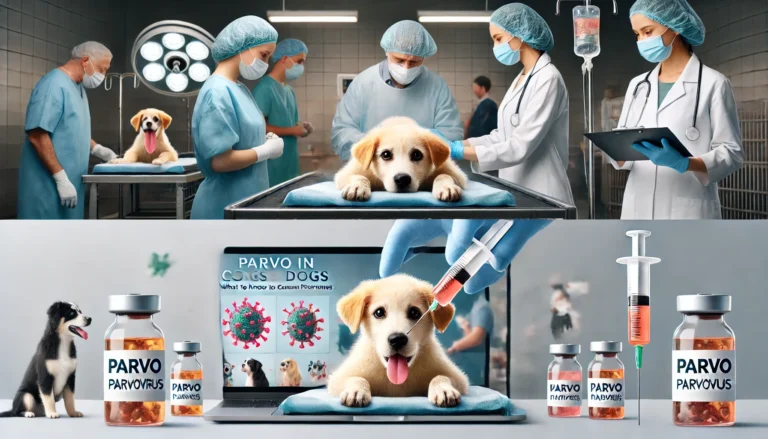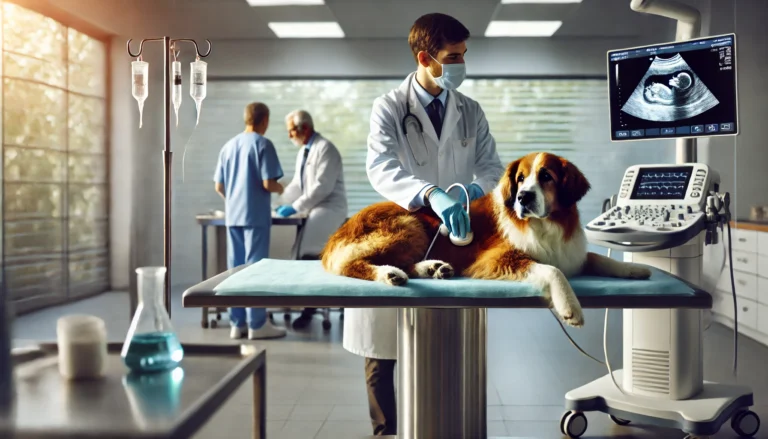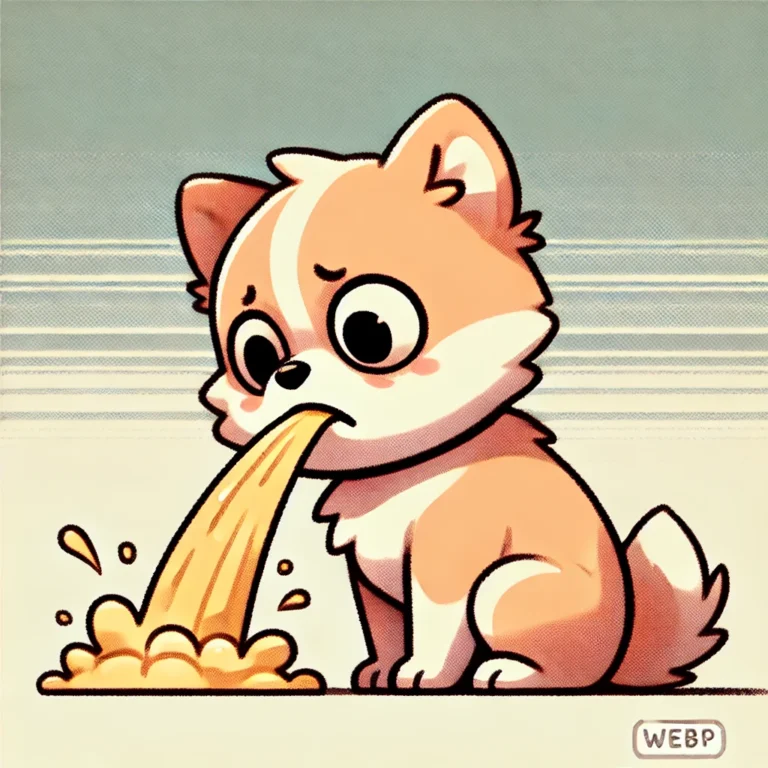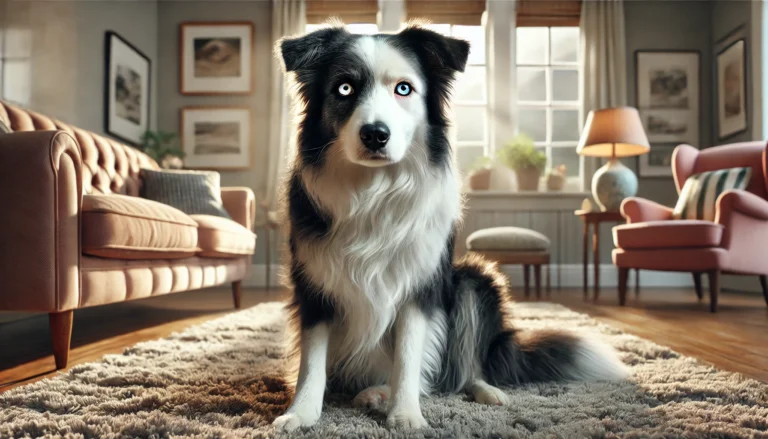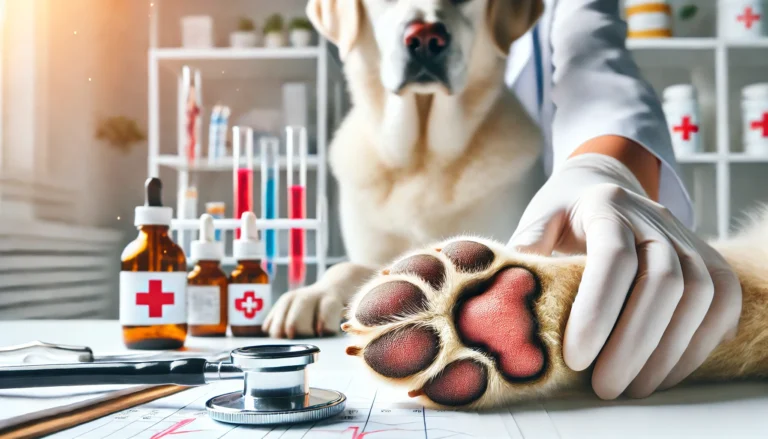Dog Intestinal Blockage: Signs and What to Do
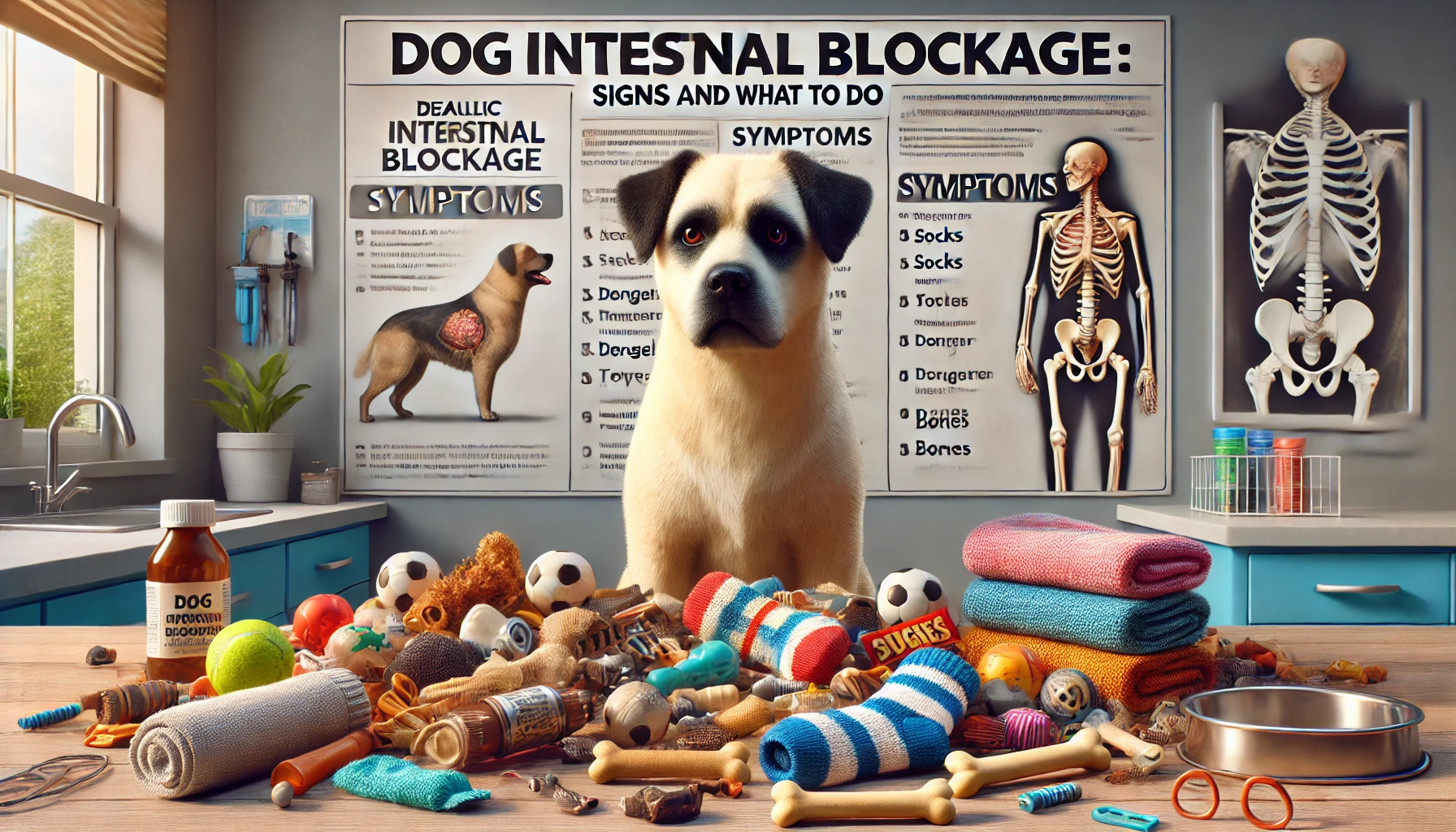
introduction
Dog Intestinal Blockage, When our furry friends start to explore the world, their curiosity doesn’t always know bounds. Often, this leads to some unwanted eating habits that can result in an intestinal blockage—a condition as serious as it sounds. From the small intestine blockage to symptoms of bowel obstruction, understanding these signs and knowing how to respond could save your dog’s life.
Understanding Dog Intestinal Blockage
Dog Intestinal Blockage, or gastrointestinal obstruction, is not something to take lightly. Whether it’s a full blockage or a partial blockage, it can severely impact your dog’s health. This blockage could be anything—a swallowed bone, a piece of toy, or even a rock—that lodges itself in the stomach or intestines, creating a barrier that disrupts normal digestion.
Types of Blockages
- Mechanical Obstruction Dog Intestinal Blockage: This includes any physical item that your dog consumes, leading to dog stomach blockage or small, Dog Intestinal Blockage.
- Functional Obstruction Dog Intestinal Blockage: This type is less about what they’ve eaten and more about their body’s ability to move food through the intestines, potentially due to muscle or nerve issues.
Recognizing the Signs of Dog Intestinal Blockage
Knowing the signs of Dog Intestinal Blockage is crucial for any dog owner. Here are some common symptoms to watch out for:
1. Vomiting
One of the first signs you might notice is vomiting, particularly if your dog can’t keep food down. This could escalate to continuous vomiting, indicating a severe obstruction.
2. Loss of Appetite
If your dog suddenly stops showing interest in food, this could be a sign of a problem. Dog Intestinal Blockage can cause significant discomfort, leading to loss of appetite.
3. Lethargy
Another telltale sign is lethargy. If your dog seems unusually tired and disinterested in normal activities, it might be time to check for other symptoms.
do you know
The Irish Doodle, a delightful blend of an Irish Setter and a Poodle, has become a beloved choice for dog lovers seeking a playful and affectionate companion.
4. Abdominal Pain
If your dog shows signs of pain when you touch their belly, or if their abdomen is swollen, these are urgent signs of canine intestinal obstruction.
5. Difficulty Defecating
Watch how your dog is defecating. If there is a change in their stool routine, or if they appear to be straining without much result, it could indicate a blockage.
6. Changes in Behavior
Other behaviors such as increased drooling, changes in posture, or signs of distress are important cues that shouldn’t be ignored.
Immediate Actions and Treatment
If you suspect your Dog Intestinal Blockage, immediate veterinary care is crucial. Here’s what to expect:
At the Vet
The vet will likely perform a physical exam and may require diagnostics like X-rays or an ultrasound to identify the location and severity of the obstruction.
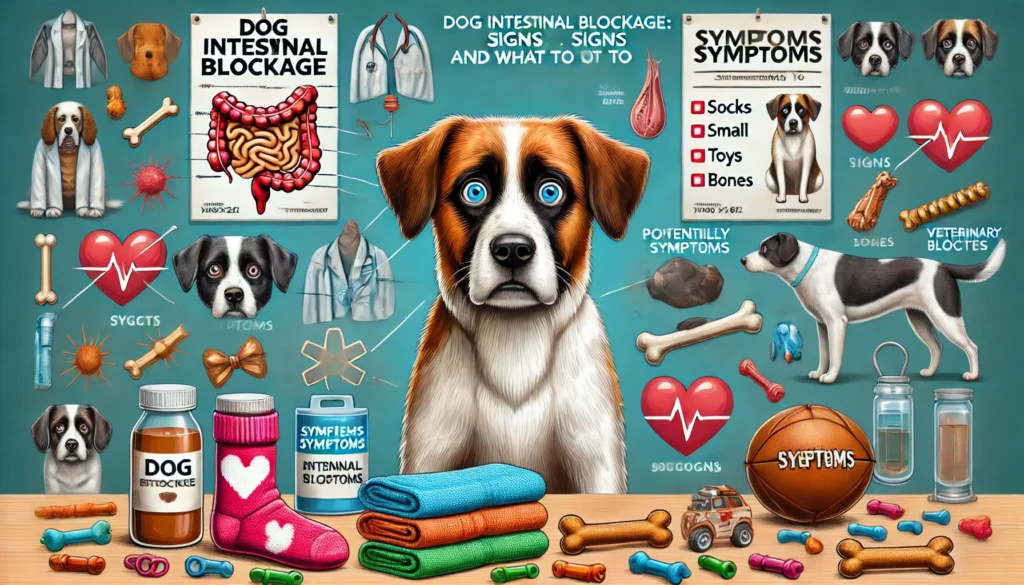
Treatment Options
- Medical Treatment of Dog Intestinal Blockage: If the obstruction is caught early and is less severe, medication to help pass the blockage might be an option.
- Surgery: In many cases, especially if there is a physical object involved, surgery will be necessary to remove the obstruction and possibly repair any intestinal damage.
Home Care and Management of Dog Intestinal Blockage
Post-treatment, taking care of your dog is essential for a full recovery. This might include:
- Diet Management: Feeding your dog a bland diet until they fully recover.
- Medication Compliance: Administering any prescribed medications to help with pain and prevent infection.
- Monitoring: Keeping an eye on their recovery process and watching for any signs of complications.
Preventative Measures
Prevention is always better than cure. To prevent future incidents:
- Safe Toys: Provide toys that are durable and safe for chewing.
- Supervision: Keep an eye on what your dog picks up during walks or in the yard.
- Training: Teaching commands like “leave it” can prevent your dog from swallowing harmful objects.
Closing Thoughts
Handling a dog with an intestinal blockage can be daunting, but understanding the signs and knowing what to do can make a significant difference in your dog’s health. Always stay alert to changes in your dog’s behavior and digestive habits, and don’t hesitate to contact your vet if you suspect something is wrong. Remember, with prompt and proper care, your dog can recover and be back to their happy, healthy self in no time.
How do I help my dog with intestinal blockage?
If you suspect your dog has an intestinal blockage, immediate veterinary care is essential. Do not attempt to treat the blockage at home. The vet will likely perform a physical examination and may require imaging tests like X-rays to confirm the diagnosis. Treatment options include intravenous fluids to combat dehydration, medications to relieve symptoms, or surgery to remove the obstruction. Aftercare will involve dietary modifications and close monitoring during recovery.
How do you relieve an intestinal blockage?
Relieving an intestinal blockage usually requires professional medical treatment. In humans, depending on the severity, treatments may include the use of medications to ease symptoms, nutritional support, and possibly surgical intervention to remove the obstruction. For dogs, similar interventions are used. If the blockage is less severe, veterinarians might administer medication to help the object pass or use endoscopy to remove it. In more serious cases, surgical removal is necessary.
Will a dog still eat if they have a blockage?
A dog with an intestinal blockage may lose their appetite and refuse to eat. Blockages can cause significant discomfort, leading to nausea and an upset stomach, which deter eating. Some dogs may try to eat, but will often vomit back the food due to the obstruction. Monitoring your dog’s eating behavior and noting any sudden changes can be crucial for early detection of this condition.
How long for symptoms of intestinal blockage in dogs?
Symptoms of intestinal blockage in dogs can appear within hours after ingesting the object, but sometimes they might take days to become evident. The progression depends on the size and type of the object ingested and where it lodges in the gastrointestinal tract. Signs such as vomiting, lethargy, abdominal pain, and changes in bowel movements may prompt a need for immediate veterinary attention.
Can intestinal blockage clear itself?
In some cases, an intestinal blockage may clear itself, especially if the object is small and malleable enough to eventually pass through the digestive tract. However, relying on the blockage to clear on its own can be risky, as complications can develop rapidly. Veterinary evaluation is crucial to determine the best course of action. In many cases, medical intervention is necessary to avoid serious health issues.
How do you treat blockage at home?
Treating a blockage at home is not recommended. If you suspect a blockage, whether intestinal or other, it is crucial to seek professional medical advice immediately. Home remedies are not effective for serious blockages and delaying professional treatment can lead to complications and severe health risks. Always consult a veterinarian for proper diagnosis and treatment options for your pet.
Will a dog with a blockage drink water?
A dog with an intestinal blockage may still drink water, but this can also induce vomiting if the blockage is severe. It’s important to monitor their hydration level but be cautious of any persistent vomiting, which can lead to further dehydration. If you notice your dog is drinking excessively or vomiting after drinking, it is best to consult a veterinarian immediately.
How can I help my dog pass naturally?
To help your dog pass a suspected ingested object naturally, ensure they remain hydrated and observe them closely. However, it’s important to consult with a veterinarian before taking any action at home, especially if the object is large or if the dog shows symptoms like vomiting, pain, or lethargy. Sometimes, under a vet’s supervision, dietary modifications like feeding wet or fiber-rich food might be suggested to aid passage.
What to give a dog to help them pass an object?
Veterinarians may recommend feeding your dog a bulky meal, such as canned pumpkin or a small amount of white bread, to help encase the object and aid its passage through the digestive tract. However, this should only be done under veterinary advice, as inappropriate items or quantities can exacerbate the blockage.
Can a blockage in a dog clear itself?
While some minor blockages can clear themselves, it’s risky to wait and see without consulting a veterinarian. An unaddressed blockage can lead to severe complications like perforation of the intestine, which is potentially life-threatening. Always seek veterinary advice if you suspect your dog has ingested a foreign object.
How will my dog act if he has a blockage?
A dog with an intestinal blockage might exhibit signs such as vomiting, especially after eating, lethargy, abdominal pain, bloating, and a lack of defecation or diarrhea. They might also show changes in behavior such as appearing depressed or aggressive when their abdomen is touched.
What oil helps dogs pass a blockage?
Mineral oil is sometimes used to help a dog pass a minor blockage, but it should never be administered without specific instructions from a veterinarian, as improper use can lead to aspiration or other complications. Generally, professional evaluation and treatment are necessary for a safe resolution.
How to treat dog blockage at home?
It is critical not to treat a dog blockage solely at home as it can lead to serious complications. Immediate veterinary consultation is necessary. The vet can provide the safest and most effective treatment, which might include hydration therapy, dietary adjustments, or surgical intervention depending on the blockage’s severity.
How to clear intestinal blockage?
Clearing an intestinal blockage typically requires medical or surgical intervention. In humans, this might involve endoscopic procedures to remove the blockage or surgery in severe cases. For pets, similar approaches are taken. A veterinarian might use endoscopy to remove the blockage or perform surgery if necessary.
Will a dog poop with a blockage?
If a dog has a complete blockage, they will not be able to pass stools and may show signs of severe distress. Partial blockages might allow some passage of stool, but these are often small, liquid, and may contain blood. Any change in bowel habits warrants immediate veterinary attention.

